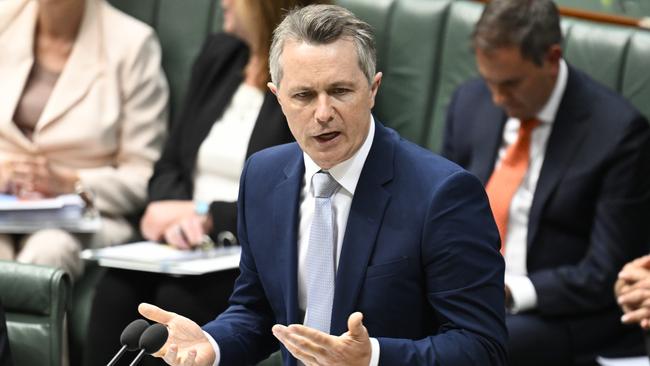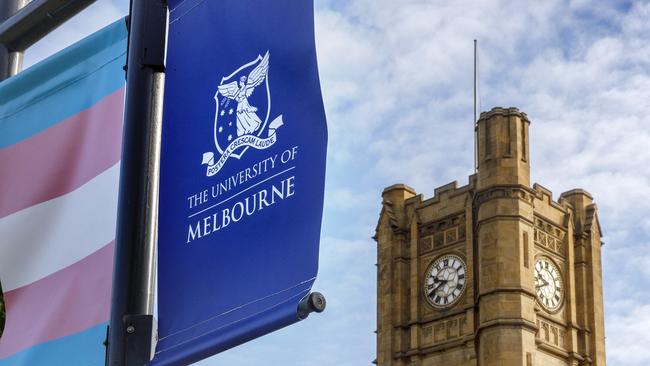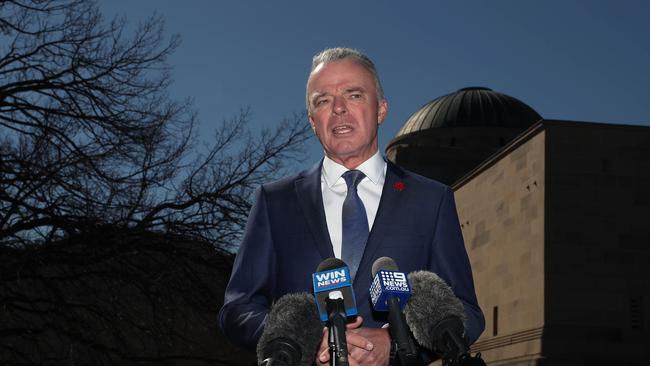
Federal Education Minister Jason Clare gets this. If Labor wins the election he will establish a new regulator with more policy input than the existing Department of Education. There is a reason for that; skills are the engine of the 21st-century economy and research is the power source that drives it. And for now universities have a near monopoly on the means of production. While the new Australian Tertiary Education Commission is being assembled, Clare is also keen to show he is fixing the mess universities have made of the way they treat staff and students.
This is an outright assault on the ideal of university autonomy but so far higher education interest groups don’t get it. For most of them the fight is for power and status in the here and now. Whoever first said academic arguments are so bitter because the stakes are so small was the sunniest of optimists to chair a faculty committee
Antediluvian academics think professors should decide what is taught and researched and that government should shut up and pay up so they can get on with it.
The big staff union would like universities to become soviets, run by the workers, plus some doctrinally sound students. Short of that, they want a say in running them, citing poor management such as incompetent administrations unintentionally underpaying staff by $100m-plus nationally. If you think the comrades exaggerate, have a look at scathing reports from the Fair Work Ombudsman, one of which sets out how the University of Melbourne managed to muck up a group of employees’ pay by $72m. Plus the National Tertiary Education Union is endemically outraged by vice-chancellors being paid the sort of salaries people running big businesses are paid in other industries.

There are even Maoists of a refined kind who think universities should serve the people. The case was made in submissions to a recent Tasmanian parliamentary inquiry into the state university’s act. As the Legislative Council committee explained: “The university has been established under statute, therefore it should be accountable to the Tasmanian public through the parliament.”
Then there are the people who have got things wrong but think they should be left alone – top managements and governing boards of individual universities who assume the good times will always roll, the cash will continually flow, and what can possibly go wrong when their institutions have a monopoly on deciding who could study what? If outsiders suggest they could do better, the higher education establishment can duck for the cover of institutional autonomy, enshrined in university acts.

The four factions scraped along OK, arguing over the spoils of not much, until Liberal education minister Brendan Nelson tried to bring university governance from the 19th to the 21st centuries. “Universities are not businesses but nevertheless manage multimillion-dollar budgets. As such they need to be run in a businesslike fashion,” he said in a 2003 report. While specifics have changed, he set the tone for state governments to decide on membership of university governing councils, which now are dominated by managements and external members with CVs that read like LinkedIn parodies.
The problem for everybody who wants universities to stay autonomous is managements are not making much of a case for their competence. While not all universities are stuffing everything up everywhere all the time, enough are on sufficient subjects for Clare to intervene.
Understandably so; the Education Minister does not run anything in any university but gets blamed for everything from high HECS to degrees that aren’t worth much in the job market.
Just now the obvious issue motivating the minister is management indifference to staff (particularly on pay) and student wellbeing; a Senate inquiry was scathing on universities’ management of sexual violence cases on campuses. So Clare has established a governance group to advise him, and state ministers, on what university councils do and how they are going. Plus there is a new student ombudsman with powers to investigate university management of complaints and initiate its own inquiries.
And any university management that wants to complain about interference should shut up. Perhaps coincidentally, Labor senator Tony Sheldon has established a Senate committee inquiry into university governance, including “compliance with workplace laws”, vice-chancellors’ pay, and membership and accountability of governing bodies. It is a gift the NTEU will unwrap with glee.
The best university lobby groups can hope for after the committee hears evidence from everybody with terrible experiences to report is that some corporate reputations will be shredded, not terminally trashed.
And this is just for starters. If Labor wins the election, from July the new central planning agency, ATEC, will work “on creating a better and fairer tertiary education system that delivers for students and on national economic and social objectives”. Note “tertiary”, which includes training – what the government has in mind is reducing the divide between universities and vocational education systems on what is taught. This can mean as much or as little as a minister wants it to mean, but if a second Albanese government is as keen in sticking its bib into education, training and the way universities are run as the first one it will mean a lot.
That university managements seem not to notice that the old ideal of autonomy is eroding is probably best for them; just now it seems there is sod-all they can do about it.




Universities are supposed to be autonomous, free to teach and research what they like, and left alone to manage their own business. Not any more; for a start, they are way too important to the economy to be outside policy planning. And just lately some are stuffing so much up that no education minister in their right mind would leave them to do what they like.